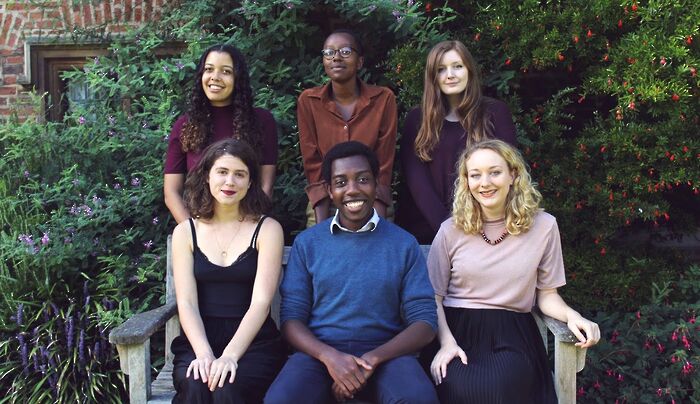Why Cambridge students should complete the National Student Survey
Professor Graham Virgo, Pro-Vice-Chancellor for Education at Cambridge, makes the case for students participating in the upcoming National Student Survey

The National Student Survey (NSS) has run each year for more than 10 years and the feedback that students have provided through this survey to the University has helped to improve teaching and learning support in many subjects.
Feedback from the NSS is collated and analysed by the University, and made available to those teaching on Triposes. In my role as Pro-Vice-Chancellor for Education, I take the NSS results very seriously. Following the 2017 Survey, as in previous years, I made it a priority to meet with senior academics from those subjects where student satisfaction fell below the high standard we all expect of Cambridge teaching. In these meetings I challenged Heads of Department and Directors of Teaching to develop action plans with their students to address any shortcomings. Thanks to the input of Cambridge students, significant improvements have been, and continue to be, implemented. I also contacted those Faculties and Departments that have achieved exceptional results, including three subjects last year that scored 100% satisfaction.
“Students must be at the heart of the higher education system and the NSS provides students with a voice which we at Cambridge really want to hear”
At university level, we use the NSS results to identify and remedy areas of concern. A particular focus over the past few years has been assessment and feedback. This prompted the launch of a Review of Examinations which was completed last Easter term, and which contains a number of recommendations to ensure that the examination system is fit for purpose, including recommendations to ensure a wider variety of modes of examination and assessment are adopted. I will be working with Faculties and Departments this year to determine how these recommendations should be implemented for the benefit of all students.
In addition to the main NSS questions, we make use of the facility to add other questions from a bank of optional questions, and we also add two questions each year proposed by CUSU, which are specifically tailored to the student experience at collegiate Cambridge. With the support and engagement of CUSU, responses to questions about workload were fed into a review in 2016, which resulted in a number of important recommendations about managing student workload at Cambridge. I continue to monitor carefully responses from the NSS about student workload, bearing in mind my concerns about the adverse effect of a heavy workload on student mental health.
If NSS results in a particular subject and for a University as a whole reach the threshold of a 50% return rate, those results are published on the Unistats website so are available to potential applicants to assist them in determining whether they wish to apply to Cambridge. These published results are also used extensively in the league tables produced by the national and international press, in which the University does so well.
Published NSS results also feed into the Teaching Excellence Framework (TEF), alongside other measures, but in response to pressure from a number of universities, including Cambridge, the weight attached to NSS in future iterations of the TEF has been halved.
Whilst the Teaching Excellence Framework is controversial, it does mean that there has been a renewed focus on the quality of teaching and learning at universities, a matter of real importance in light of high tuition fees. Students are now paying a lot for their university experience and need to have confidence in the quality of the education they are getting. I share the views of many students that the introduction of tuition fees is unfair and unjust (I was one of the students who was lucky to be educated at Cambridge at a time when grants were available, so I did not need to pay anything for my education). Initially, the Government proposed a direct link between performance in the TEF and tuition fees. That link was broken by the Higher Education Reform Act last year. So completing the NSS, whilst still constituting a metric for the TEF, will not have an impact on tuition fees.
This year Cambridge is participating in a pilot testing different models for subject-level TEF and this is an important opportunity for us to influence the shape of the exercise for future years before we consider participating again in 2020 when our current Gold rating expires.
For those students who are eligible to complete the NSS, typically those who are graduating this year, when you decide whether to do so, I would urge you to keep in mind the invaluable role that your feedback plays in helping prospective students from all backgrounds to make informed decisions and in improving the Cambridge experience for future students. Students must be at the heart of the higher education system and the NSS provides students with a voice which we at Cambridge really want to hear
 News / SU reluctantly registers controversial women’s soc18 December 2025
News / SU reluctantly registers controversial women’s soc18 December 2025 News / CUP announces funding scheme for under-represented academics19 December 2025
News / CUP announces funding scheme for under-represented academics19 December 2025 Features / Should I stay or should I go? Cambridge students and alumni reflect on how their memories stay with them15 December 2025
Features / Should I stay or should I go? Cambridge students and alumni reflect on how their memories stay with them15 December 2025 Fashion / The art of the formal outfit 18 December 2025
Fashion / The art of the formal outfit 18 December 2025 News / Dons warn PM about Vet School closure16 December 2025
News / Dons warn PM about Vet School closure16 December 2025










